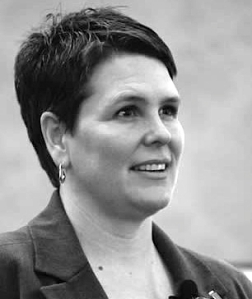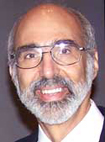by Ethan Clark
Welcome to Washington, DC the center of policy, politics, and protesters. Learn how to make your case for the arts at Emerging Arts Leaders Symposium (EALS) on April 15, 2012. Organized by American University Arts Management students, EALS provides you with professional collaboration and leading discussion on today’s arts management trends including arts advocacy.
EALS Panel discussion, Arts Advocacy 101: Learn the Language, features DC’s leading experts in research, policy, and communication. Learn the potential effects of research and policy on arts organizations. Know your role as an arts advocate to build and maintain successful civic and government relationships. Apply your knowledge and experience to current and available data to distinguish your organization’s public message.

Anne L’Ecuyer
Anne L’Ecuyer
Professor of Arts Management at American University
Moderator Anne L’Ecuyer is a writer and a consultant who stays closely connected to an international network of city leaders, cultural professionals, and working artists. She is an expert in creative industries and cultural tourism in the United States, as well as the contributions of the arts toward educational, social, and environmental goals. L’Ecuyer’s experience producing seven national conferences and leadership events for cultural professionals and their allies in government, business, and education guides this panel with a perspective from across the board.
Today, Anne owns and operates the Washington Writer’s Retreat, a private writing and research residency in the nation’s capital. She is an essayist currently at work on a book-length collection that profiles cultural leaders in ten American cities. Anne also consults independently with businesses, nonprofits, and public institutions. She holds a Bachelors degree from Northern Arizona University, studied public policy at the University of Maryland at College Park, and now teaches at American University in the Arts Management program.

Jonathan Katz
Jonathan Katz
CEO of National Assembly of State Arts Agencies
Jonathan Katz, Ph.D., is CEO of the National Assembly of State Arts Agencies (NASAA), which was created by the 50 state and six jurisdictional arts agencies of the United States as their primary vehicle for arts policy development, advocacy, leadership development, research, information and communication. Dr. Katz consults globally on cultural policy, leadership development, strategic planning and effective advocacy. A former member of the U.S. Commission on UNESCO, he has advised the International Federation of Arts Councils and Cultural Agencies on its corporate development and facilitated its CEO Seminar for heads of national arts and cultural agencies at World Summits in England, South Africa and Australia.
Most recently, he has advised the governments of Korea and Canada and led a session on problem solving for Grantmakers in the Arts in Chicago. He is a founder of the Arts Education Partnership, the nation’s coalition of more than 100 organizations for the advancement of learning in the arts, and of the Cultural Advocacy Group, which is the forum through which the national cultural service organizations of the U.S. develop their united federal agenda. For the U.S. Department of State, he has conducted planning and professional development sessions with culturalagencies in five cities in Mexico.

Robert Bettmann
Robert Bettmann
Advocacy Director for DC Advocates for the Arts
Robert Bettmann is a choreographer, community organizer, writer and administrator. He is the Advocacy Director for the DC Advocates for the Arts, Managing Editor of the arts magazine Bourgeon, and the author of the book Somatic Ecology. The Washington Post called his recent choreography, Quis Custodiet, “A powerful performance” (August, 2011). Later this spring the Arts Club of Washington will host the book launch and award event for the 2nd annual DC Student Arts Journalism competition.

Andrea Kreuzer
Andrea Kreuzer
Program Associate of Arts Education Partnership
Panelist Andrea Kreuzer is a Program Associate for Research and Policy at the Arts Education Partnership (AEP), based in Washington, DC. At AEP she has a substantial role in developing and authoring a new user-friendly database of outcomes-based arts education research and policy implications, called ArtsEdSearch. She’s also working with the U.S. Department of Education’s Professional Development for Arts Educators Program to develop and implement a rubric to assess the quality and effectiveness of grantee Annual Progress Reports. Andrea also co-wrote the AEP Research Bulletin, Music Matters: How music education helps students learn, achieve, and succeed which compiles and digests recent research on the benefits of music education.
Andrea received her Master of Arts degree in Museum Studies from The George Washington University and her Bachelor of Sciences degree in Photography and Art History from Ithaca College. Before coming to AEP Andrea worked in museum research and evaluation, and in exhibition development and design at the Smithsonian Institution National Museum of Natural History and the National Geographic Society.

Jeffrey Herrmann
Jeffrey Herrmann
Managing Director of Woolly Mammoth Theatre Company
Panelist Jeffrey Herrmann became Managing Director of Woolly Mammoth Theatre Company in 2007 after eight seasons as Producing Director of Alaska’s Perseverance Theatre. A NY native of Schenectady, NY, Jeffrey grew up in West Hartford, CT, and received his BA in English at Vassar College and his MFA in Theater Management at the Yale School of Drama. Prior to his enrollment at Yale, he was Managing Director of the Albany Berkshire Ballet in Pittsfield, MA. During his time at Yale, he worked at the Mark Taper Forum in Los Angeles and as Associate Managing Director of the Yale Repertory Theatre.
Curious about trends and issues in arts policy and advocacy? Do you have questions for our panelists? Got anything in particular you want to hear from these panelists?
Share with us and bring the questions to the Emerging Arts Leaders Symposium on Sunday, April 15, 2012. See you there!
 When you think about your typical advocate for government transparency, who comes to mind? I bet lawyers, bloggers, teachers, Tea Partyers, maybe even environmental activists, but not artists. Right? For many, the connection between artists and the government — let alone the governing process — is unclear, but the reality is that government decisions have a direct impact on the creative community, and artists know it. Our federal government and most local and state governments provide specific agency support for the arts and humanities and make important budgetary decisions about programming and grant-funding that effects the work of individual artists, curators and entrepreneurs.
When you think about your typical advocate for government transparency, who comes to mind? I bet lawyers, bloggers, teachers, Tea Partyers, maybe even environmental activists, but not artists. Right? For many, the connection between artists and the government — let alone the governing process — is unclear, but the reality is that government decisions have a direct impact on the creative community, and artists know it. Our federal government and most local and state governments provide specific agency support for the arts and humanities and make important budgetary decisions about programming and grant-funding that effects the work of individual artists, curators and entrepreneurs.



